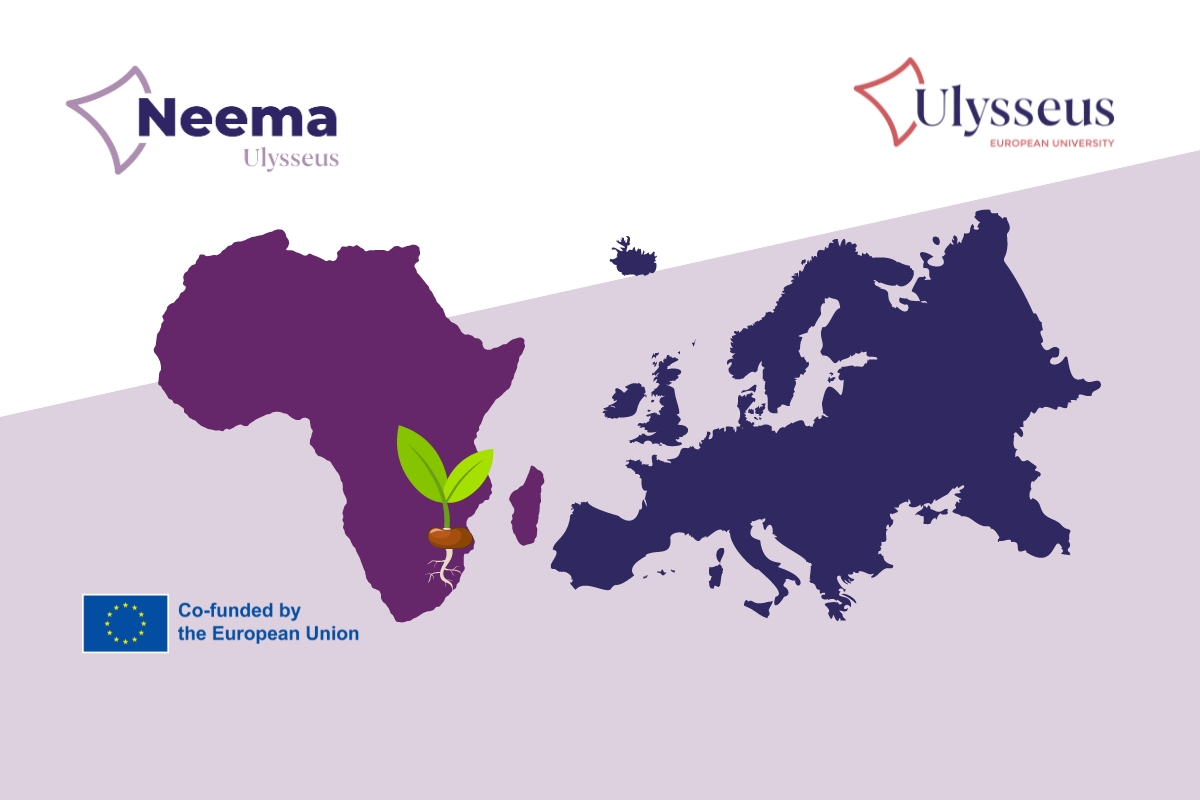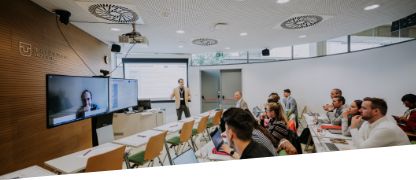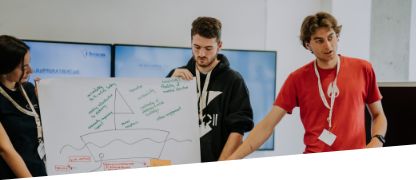NEEMA project launches innovative initiatives to enhance food and nutritional resilience in West Africa
NEEMA project, spearheaded by Ulysseus European University, initiates a collaborative effort to develop Food and Nutritional Resilience curricula tailored to the needs of West Africa.

The NEEMA project, dedicated to capacity building in higher education institutions across West Africa, has commenced its journey with an online kick-off meeting on 22 February. This meeting introduced groundbreaking initiatives aimed at addressing the region’s food and nutritional challenges. The event was divided into two parts, featuring presentations and discussions led by esteemed speakers and partners.
NEEMA, which means ”food” in Fula, a Senegambian language, is a collaborative effort involving five partners from the Ulysseus European University: the University of Seville (Spain), the University of Genoa (Italy), MCI | The Entrepreneurial School (Austria), Université Côte d’Azur (France), and Haaga-Helia University of Applied Sciences (Finland). Additionally, it includes Hochschule Kehl University of Applied Sciences (Germany) and eight African universities: Université Djibo Hamani de Tahoua (Niger), Université Cheikh Anta Diop de Dakar (Senegal), Université Amadou Mahtar Mbow (Senegal), Université Ouaga II Thomas Sankara (Burkina Faso), Université Abdou Moumouni de Niamey (Niger), Université Polytechnique de Bobo-Dioulasso Boni (Burkina Faso), Université de Sciences Juridiques et Politiques de Bamako (Mali), and Institut Polytechnique Rural de Formation et de Recherche Appliquée (Mali).
The starting hypothesis of the NEEMA project is that the conceptual framework provided by the European Green Deal (EGD) and the Farm to Fork (F2F) Strategy must be adapted to the conditions of the Sahel and West Africa (WA), identifying, minimizing, and reducing its negative impact on food and nutritional security, especially for the most vulnerable populations.
The project will be implemented by the NEEMA consortium, established in June 2021, comprising 14 HEIs from Africa (8) and Europe (6), with the participation of leading universities from the Ulysseus Alliance. The main outcomes of the project will include a new and adapted Food and Nutritional Resilience (FNR) curriculum, an FNR Social Innovation Pilot Model, the development of the NEEMA Strategy and Action Plan on FNR challenges in the WA-Sahel region, and the creation of a Regional FNR training and research Network. The project aims to strengthen and modernize the eight participating African HEIs through the generation and transfer of new knowledge adapted to local needs.
NEEMA presentations
The kick-off meeting included comprehensive insights into various aspects of the project, such as EU funding, objectives, work packages, and the roles of partner institutions. Key highlights included:
- General Overview of NEEMA: Pr. Miguel Ángel Martín, Project Coordinator at University of Seville (Spain), presented an overview of the NEEMA project, outlining its objectives and expected outcomes.
- Work Packages Presentations: Representatives from partner institutions introduced the five work packages, focusing on management, curriculum development, social innovation, cooperation, and communication strategies.
The meeting concluded with the establishment of the Steering Committee, comprising representatives from partner institutions. Key discussions and decisions included:
- Language and Meetings: Agreement on using French as the working language with English for documentation. Meetings to be held in person every six months and virtually every month.
- On-site Meetings and Collaboration Tools: Proposal to organize on-site meetings as soon as funds are available. Adoption of Onedrive as a collaborative tool for project work.
Next steps
The project will proceed with Work Package team meetings, development of the Consortium Agreement, and action planning.
NEEMA aims to strengthen Higher Education institutions in West Africa through knowledge transfer and innovative practices aligned with local needs.
For more information and updates on the NEEMA project, please visit our projects’ website.
About NEEMA
NEEMA is a 36-month capacity building project of Ulysseus European University funded through the ERASMUS+ program. It aligns with the European Green Deal and Farm to Fork Strategy, adapting these frameworks to the unique challenges of the Sahel and West Africa.
Led by the University of Seville, NEEMA aims to enhance food and nutritional resilience, focusing on vulnerable populations. The project involves 14 universities across Africa and Europe, fostering collaboration, designing contextual curricula, and launching pilot initiatives to strengthen local capacities in food security and sustainability.






